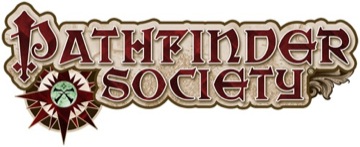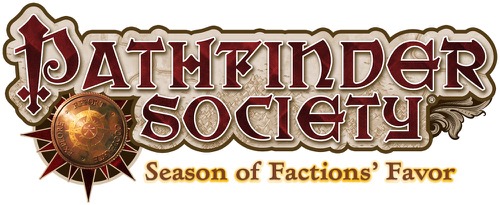
|
| 1 person marked this as a favorite. |
Detect the Faithful is a divine spell whose only real function was to allow for persecuted individuals in hostile areas to find true members of their faith and avoid individuals that where spies or trying to harm members of the faith.
Ultimate Intrigue reprinted that spell, but added in the line "Furthermore, since the spell picks up a creature’s current beliefs and feelings, a creature actively pretending to be a member of the same faith also appears to the spell to be a member." This basically makes the spell outright useless, especially for a true follower that is attempting to see if they person that is trying to help them is actually a secretive follower of their own faith or simply part of the exact hostile faction that they are trying to avoid.
How is that fun for anyone except for an antagonistic DM? Why would anyone, ever use this spell? And so, why is this even an option then, other than because the book is suggesting that it's a good thing for DMs and ST to take this sort of DM style and use it.
NPCs have access to spells, too. I'd like to be able to infiltrate an evil cult without being shut down by a 1st-level spell, thank you. That line increases playable options.
I think you misrepresent the utility. It is still useful for detecting faithful in an otherwise neutral crowd. It only picks up fakers if their actively faking their belief, not if they are going about their business. You can use it to identify which shopkeeper secretly shares your beliefs. You might want to be cautious about the random man loitering nearby conveniently in your area of effect, and it is (rightly) useless for purifying a congregation.
In fact, most of the spells and options in Ultimate Intrigue are just there to escalate the game, introducing an option that negates something else, like a Classes Immunity to ______, and then another option that allows that first option to maybe work. I'm sorry, these where terrible for the game and terrible advice for people that want to run games that play within the theme.
In combat we have DR, energy resistance, immunity, and ways to overcome those things. Making society complex for a social game is not bad game design. Sure, hold back on the options for your dungeon crawl. If you are only ever going to talk to the bartender, you don't need the options. Go ahead and auto-win that Diplomacy check.

|
I disagree. What it did was make the spell unreliable, because it now comes down to how the DM wants to handle it, and clearly states that individuals faking it, (as in with the intent to harm you or other members of your faith), are not revealed. I'm not misrepresenting the utility, the spell originally appeared in Taldor: Echoes of Glory where it was talking about how in Taldor the Faith of Sarenrae was actively hunted, and this spell was there for faithful to be able to find other real faithful and avoid being caught by those that faked it to infiltrate the hidden cells.
The original spell already included the line that those with heretical beliefs still counted, so allowed for some discrepancy, but also allowed for, as BNW mentioned, a difference between "evil" and "antagonist", as for instance a typical follower of Sarenrae and a Cultist of the Dawnflower would both still count, and could both be Non-Evil, but might be archenemies. That is interesting. Gutting the entire function of the spell, is not.
And social encounters could already be complex. The Core rules already offer suggestions and talk about some things simply being beyond the roll itself. What Ultimate Intrigue did instead is to make characters with a lot of investment in Diplomacy only somewhat stronger than other characters that didn't in the social arena.

|
The subsystems in both Horror Adventures and Ultimate intrigue open up better space for different types of games, so I do not really understand your beef. Your diplomacy example is perfect. Cheesing out diplomacy to solve social encounters, encourages not just so-so role play but being a great talker does not automatically mean you know what people want. Encounters with those mechanics have been both some of the best playing experiences and fun to GM.
|
|
| 1 person marked this as a favorite. |
Even without these systems, though, a GM had that power. In A Home Game.
*vividly remembers the high Diplomacy character who proceeded to 'politely' raise two figurative middle fingers to a major political figure in Rise of the Runelords, and it colored the remaining of the campaign when the payback caught up.*
The problem is when it hits Org Play, then it has to go *exactly as written* when no one can ever agree on what *exactly as written* PRECISELY entails.
We see enough threads on this board going into theory pedantry, and I'd prefer to have *less* rather than *more* of that when there's a slot I'm either running or playing and trying to get done in a 4-5 hour timeframe.

|
The subsystems in both Horror Adventures and Ultimate intrigue open up better space for different types of games, so I do not really understand your beef. Your diplomacy example is perfect. Cheesing out diplomacy to solve social encounters, encourages not just so-so role play but being a great talker does not automatically mean you know what people want. Encounters with those mechanics have been both some of the best playing experiences and fun to GM.
Firstly, I think there is a disconnect here, between me disliking the way that specific spell was handled, (which was intended only as an example of the issue I have with the book overall), and the assumption I dislike the subsystem. I dislike that bad advice that the book as a whole offers on how to run a game based around intrigue, which is to rob different classes of their options and to change base assumptions of the game in order to make the story or plot work.
In what little experience I have had, seen, or read about the social mechanics as presented, the experiences have not been too good. This is a separate issue from the above. Bluff, Diplomacy, Intimidate, and Sense Motive, the most typical Social skills already very well cover, in my opinion, a lot of what the subsystems in the book try to go into, and if others like the extra detail and in a sense, "combatization" approach, that's fine. It wasn't for me, and really didn't accomplish much that the base rules didn't overall, it just added a somewhat clunky system to it, but one that is somewhat dull as well.
However, my main point is that I disagree with the overall suggestions about how to run an intrigue or political game from the book, specifically in that it tries to remove things from players rather than to work with them. Like I said, not only allow them to use teleport when they finally get it, but reward them for it rather than trying to shut it down or make it a burden just because the plot can't handle it. Granted, the book does offer some suggestions about ways to counter these things, but even those I found to be from the standpoint of an antagonistic DM (against the party) rather than one trying to let everyone do cool stuff.

|
Fair enough on not quibbling over that specific, but assuming I understand your general concern correctly I fundamentally disagree. A significant part of me is an uncontrollable hyper-optimizer and rules lawyer. Which is to say that I still enjoy a fair bit of the strategy and theory crafting challenges, but I am nowhere near the level of rules master that I was in second edition. That said I enjoy good character development and role-playing way more then I did when I was 16. This is relevant because I still reflexively view things deeply through a rules lens or from an engineering perspective. Which means that every rule impacts the feel and play of the game, which is the ultimate goal to have a game feel that you want. An intrigue or horror game has a radically different game feel, ergo it requires a different set of rules to maximize the feel.
That is actually 1 of the things I like the most about Pathfinder, I can include or exclude different portions of the rules and subsystems to get the kind of feel that matches what I am looking for.
Another way of getting at that is that it doesn't matter what the PCs gimmick is for solving an encounter there is always a natural counter measure. And teleport is a perfect example, a competent villian at that power level who is capable of strategy will find any number of ways to shut that strategy down. That's not being antagonistic as a GM it represents the bad guys trying. Even creative tactics once they become common should be negated by competent enemies. This is the fundamental question in designing a challenge for players, what will push them enough to make the outcome in doubt and still work within the narrative. If you alter the mix of rules a bit to give a different feel this is not altered, and actually can add variety (oh I can't teleport my way out of this, perhaps I'll make a heroic stand to give my companions a chance to run and come back stronger). In short if there's no pushback against common or obvious strategies then it becomes very easy to Win at Pathfinder which is a complete total loss.






